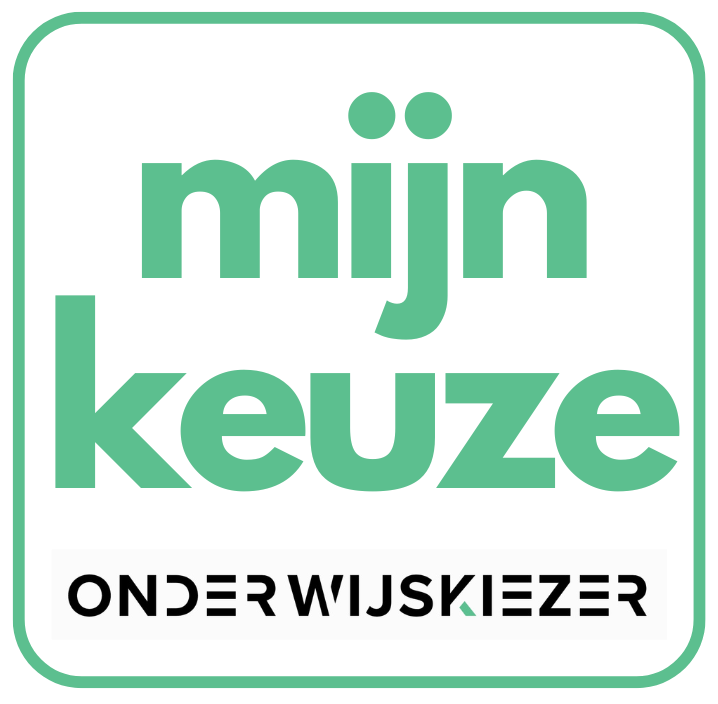Biochemistry and Biotechnology (E) - Master
Studiepunten
120
Biochemistry and Biotechnology (E) - Master |
|
TOELATINGSVOORWAARDEN
Het bezit van de graad van bachelor, verworven in een academische gerichte bacheloropleiding, geeft recht op een rechtstreekse toegang tot minstens één masteropleiding.
Andere manieren om van een bachelor door te stromen naar een master:
- na een professioneel gerichte bacheloropleiding dient er een schakelprogramma te worden gevolgd.
- na een academische bacheloropleiding met een andere kwalificatie dient er eventueel een voorbereidingsprogramma te worden gevolgd.
Extra taalvoorwaarden voor internationale studenten
De onderwijsinstellingen kunnen het slagen in een examen in de onderwijstaal opleggen als toelatingseis voor houders van een buitenlands diploma.
Situering
Opleiding: Biochemistry and Biotechnology (E)
Studieniveau: Master - HO
Specificatie: Master of Science
Studiegebied: Wetenschappen
Belangstellingsdomeinen: Exacte wetenschappen, Wiskunde-cijferwerk,
Schoolvakken SO: Biologie, Biotechniek, Chemie, Natuurwetenschappen,
Vervolgopleidingen
Na een masteropleiding kan je, binnen het hoger onderwijs, verder studeren in:
een master-na-master
Volgende Ma-na-Ma's sluiten aan op Biochemistry and Biotechnology (E)
Eventueel zijn er nog andere mogelijkheden op basis van uw gevolgd studietraject. Raadpleeg de hogeschool voor meer informatie.
een postgraduaat
De toelating tot een postgraduaat verschilt per opleiding. Raadpleeg de toelatingsvoorwaarden per opleiding.
een bachelor-na-bachelor
Verder studeren kan ook in een Ba-na-Ba. De toelatingsvoorwaarden kunnen verschillen per opleiding.
een lerarenopleiding
Na een masteropleiding kan je via een verkorte educatieve masteropleiding leraar worden. Deze opleiding neemt 60 studiepunten in beslag en wordt georganiseerd door een universiteit. Meer info.
Beroepsuitwegen
A very large number of the current graduates in biochemistry and biotechnology (between 40-60% in the past 5 years) starts doctoral studies; most of them graduate successfully. Ghent University has a strong research tradition in the domain of biochemistry and biotechnology, which leads to highly qualified PhDs in an internationally competitive research environment.
Later, these doctors find their way to national and international universities, research institutions and a growing number of young biotechnological companies.
The use of biochemical and biotechnological methods and production strategies increases in health care, the environmental sector, food industry, the agricultural industry, the chemical industry.
This implies that there is and will be a demand for academically educated, but also practically trained biochemists and biotechnologists.
Given the broad scientific basic education, the combination of chemistry and biology, the practical and research-oriented aspects of the study programme, the biochemist and the biotechnologist are well trained for the job market.
The fields of employment are scientific research at universities, research centers, R&D in companies, the pharmaceutical industry, cosmetics companies, laboratories for medical analysis, the food industry, fermentation industry, agricultural industry, petrochemical industry, chemical industry, biotechnological companies, companies in environmental technology, public services for water treatment, the environmental sector.
Finally, graduates in biochemistry and biotechnology often end up in education, both at the level of the secondary schools (for masters) and at the level of the colleges of higher education (for doctors).
Hier een overzicht van mogelijke aansluitende beroepen uit de beroependatabase van onderwijskiezer.
Er kunnen steeds nog andere mogelijkheden zijn.
Klik op een beroep voor meer informatie.
Mogelijke beroepen
| Gegevens bijgewerkt tot 11-03-2020 |
Biochemistry and Biotechnology (E) - Master |
|
TOELATINGSVOORWAARDEN
Het bezit van de graad van bachelor, verworven in een academische gerichte bacheloropleiding, geeft recht op een rechtstreekse toegang tot minstens één masteropleiding.
Andere manieren om van een bachelor door te stromen naar een master:
- na een professioneel gerichte bacheloropleiding dient er een schakelprogramma te worden gevolgd.
- na een academische bacheloropleiding met een andere kwalificatie dient er eventueel een voorbereidingsprogramma te worden gevolgd.
Extra taalvoorwaarden voor internationale studenten
De onderwijsinstellingen kunnen het slagen in een examen in de onderwijstaal opleggen als toelatingseis voor houders van een buitenlands diploma.
Situering
Opleiding: Biochemistry and Biotechnology (E)
Studieniveau: Master - HO
Specificatie: Master of Science
Studiegebied: Wetenschappen
Belangstellingsdomeinen: Exacte wetenschappen, Wiskunde-cijferwerk,
Schoolvakken SO: Biologie, Biotechniek, Chemie, Natuurwetenschappen,
Vervolgopleidingen
Na een masteropleiding kan je, binnen het hoger onderwijs, verder studeren in:
een master-na-master
Volgende Ma-na-Ma's sluiten aan op Biochemistry and Biotechnology (E)
Eventueel zijn er nog andere mogelijkheden op basis van uw gevolgd studietraject. Raadpleeg de hogeschool voor meer informatie.
een postgraduaat
De toelating tot een postgraduaat verschilt per opleiding. Raadpleeg de toelatingsvoorwaarden per opleiding.
een bachelor-na-bachelor
Verder studeren kan ook in een Ba-na-Ba. De toelatingsvoorwaarden kunnen verschillen per opleiding.
een lerarenopleiding
Na een masteropleiding kan je via een verkorte educatieve masteropleiding leraar worden. Deze opleiding neemt 60 studiepunten in beslag en wordt georganiseerd door een universiteit. Meer info.
Beroepsuitwegen
A very large number of the current graduates in biochemistry and biotechnology (between 40-60% in the past 5 years) starts doctoral studies; most of them graduate successfully. Ghent University has a strong research tradition in the domain of biochemistry and biotechnology, which leads to highly qualified PhDs in an internationally competitive research environment.
Later, these doctors find their way to national and international universities, research institutions and a growing number of young biotechnological companies.
The use of biochemical and biotechnological methods and production strategies increases in health care, the environmental sector, food industry, the agricultural industry, the chemical industry.
This implies that there is and will be a demand for academically educated, but also practically trained biochemists and biotechnologists.
Given the broad scientific basic education, the combination of chemistry and biology, the practical and research-oriented aspects of the study programme, the biochemist and the biotechnologist are well trained for the job market.
The fields of employment are scientific research at universities, research centers, R&D in companies, the pharmaceutical industry, cosmetics companies, laboratories for medical analysis, the food industry, fermentation industry, agricultural industry, petrochemical industry, chemical industry, biotechnological companies, companies in environmental technology, public services for water treatment, the environmental sector.
Finally, graduates in biochemistry and biotechnology often end up in education, both at the level of the secondary schools (for masters) and at the level of the colleges of higher education (for doctors).
Hier een overzicht van mogelijke aansluitende beroepen uit de beroependatabase van onderwijskiezer.
Er kunnen steeds nog andere mogelijkheden zijn.
Klik op een beroep voor meer informatie.
Mogelijke beroepen
| Gegevens bijgewerkt tot 11-03-2020 |






